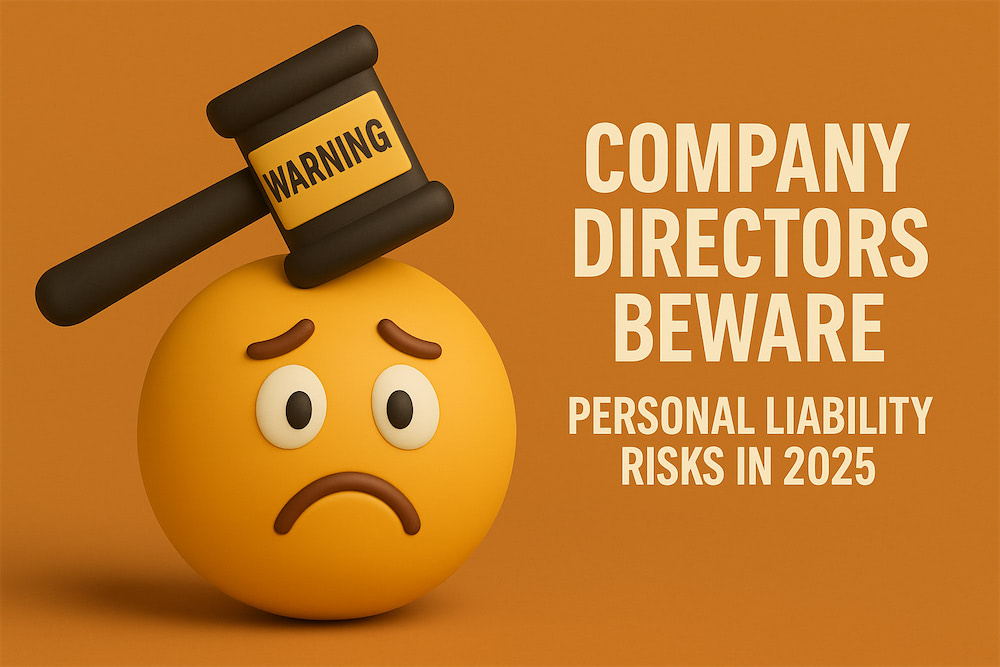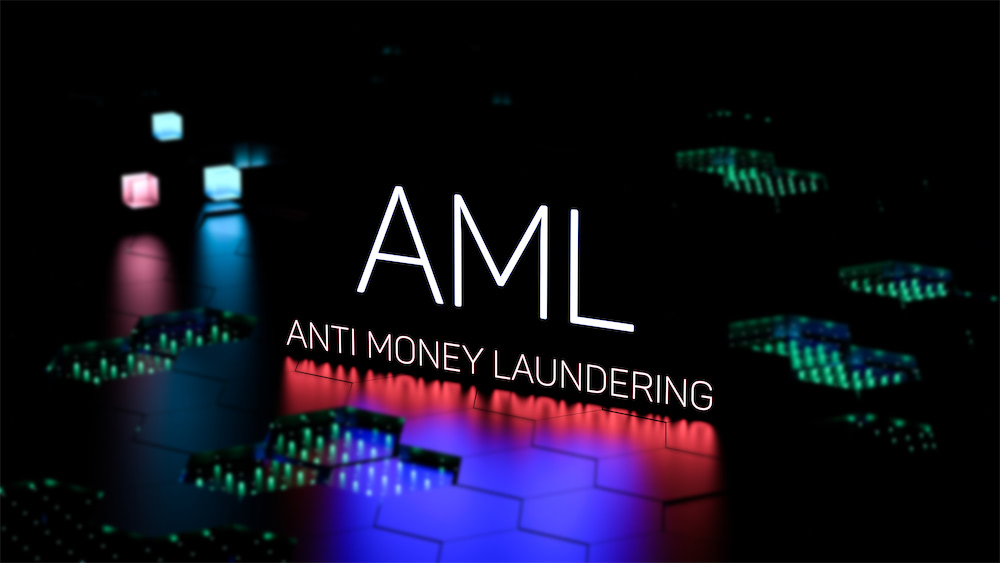

Company Directors Beware: Personal Liability Risks in 2025
As most lay persons in the business arena know – at least on the face of it – a company exists independently from its directors. In other words, a company has a legal personality separate from its directors and shareholders, trading in its own name and holding its own assets and liabilities. And that can give a lot of director’s peace of mind as they go about their business day-to-day.
But – because there is always a but - directors are responsible for the overall management and direction of a company and their duties are governed by the Companies Act of 2008 (as amended)(“Companies Act”) in South Africa.
Directors’ duties include being required to act in good faith and in the best interests of their company. Directors can therefore be held personally liable if they breach these duties.
Directors’ duties consist of fiduciary and statutory duties -
1. Fiduciary duties - legal obligations that directors owe to a company and its shareholders. These duties are essential for ensuring that the company is managed in the best interests of all stakeholders:
a) Duty of Loyalty: directors must act in the best interests of the company and avoid conflicts of interest.
b) Duty of Care: directors must exercise reasonable care, skill, and diligence in carrying out their duties.
c) Duty of Good Faith: directors must act honestly and in good faith and in the best interests of the company.
2. Statutory duties - legal obligations that directors have under South African law:
a) Compliance with the Companies Act: directors must comply with the Companies Act of South Africa and other relevant legislation.
b) Financial Reporting: directors must ensure that the company's financial statements comply with legal requirements and provide a true and fair view of the company's financial position.
c) Risk Management: directors must identify and manage risks that could affect the company's business operations.
What happens if a director breaches their duties?
As stated above, should a director breach either their fiduciary or statutory duties, they can be held personally liable for damages suffered by the company or its shareholders. Consequences of breaching director duties can include -
1. Personal liability for damages - directors can be held personally liable for damages suffered by the company or its shareholders.
2. Fines and Penalties - directors can be fined or penalised for breaching their duties.
3. Criminal Liability - in some instances, directors may even face criminal charges for breaching their duties.
Guideline 1 of 2025
To illustrate how dire the consequences of breaching their fiduciary or statutory duties are, Guideline 1 of 2025 – Consequences of Non-Compliance with Director Duties was drawn up by Advocate Rory W. Voller to “sensitize directors on the consequences for non-compliance with their duties to a company”.
First and foremost, it’s important to emphasise that a director must not use their position of director to knowingly cause harm to the company.
Section 77 (3) of the Companies Act, emphasises that a director of a company in his/her personal capacity may incur civil liability if the company of which he/she is a director incurred loss or damage because of said director –
1. Acting on behalf of the company without the necessary authority.
2. Trading recklessly.
3. Being a party to an act or omission by a company calculated to defraud.
4. Being a party to false and misleading financial statements.
5. Being a party to a prospectus or written statement that contains an untrue statement, or
6. ls/was present at a meeting and failed to vote against an unauthorized or inconsistent provision of the Companies Act.
A director in his/her personal capacity may be held criminally liable in terms of sections: 213; 214 and/or 215 (2) (e) of the Companies Act for:
1. Disclosing confidential information concerning the affairs of any person obtained in conducting any function in terms of the Companies Act.
2. The falsification of the company's accounting records.
3. Providing false and misleading information.
4. Is a party to an act or omission by a company calculated to defraud.
5. Is a party to a prospectus or written statement that contains an untrue statement.
6. Failing to satisfy a compliance notice.
Directors must also take note – as set out by CIPC – of Section 78 (Indemnification and directors’ insurance) of the Companies Act –
“CIPC has found that directors of companies often fail to fully appreciate the requirements of this section, which should be read with sections 75,76,77,213, 214 and 215. This leads to an incorrect perception that there will be indemnification irrespective of a breach of section 75 (Director’s personal financial interests), 76 (Standards of directors conduct), 77 (Liability of directors and prescribed officers), 213 (Breach of confidence), 214 ( False statements, reckless conduct and non-compliance) and/or 215 (Hindering administration of Act) of the Companies Act”.
Relevant Case Law
A judgment by the Supreme Court of Appeal (SCA) handed down in June 2024 clarifies the conditions under which directors can be held personally liable for a company’s actions. The judgment not only reinforces the autonomy of a company but also clarifies the conditions under which the personal liability of a director arises.
What the case is about
The appellant, Venator Africa (Pty) Ltd, a manufacturer of chemical products, concluded an agreement with Siyazi Logistics and Trading (Pty) Ltd to handle clearing and forwarding duties. Siyazi was responsible for issuing disbursement accounts to Venator, indicating the amounts owed to the South African Revenue Service (SARS). Venator would pay Siyazi, which was required to pay SARS.
In 2018 and early 2019, Siyazi indicated the SARS disbursement was more than R66 million. Venator paid the amount to Siyazi, but Siyazi only paid R31m to SARS. SARS, being short-changed, raised assessments that resulted in penalties on top of the missing R34m. As a result, Venator claimed that it suffered damages totalling more than R41m.
Venator sued the directors of Siyazi for breaches of sections 22(1) and 218(2) of the Companies Act, alleging that they were “the guiding minds behind the fraud”, or had been “reckless” or “grossly negligent” in controlling the activities of Siyazi.
Ø Section 22(1) provides that “a company must not carry on its business recklessly, with gross negligence, with intent to defraud any person or for any fraudulent purpose”.
Ø Section 218(2) stipulates that “any person who contravenes any provisions of the Act is liable to any other person for any loss or damage suffered by that person as a result of that contravention”.
The directors of Siyazi opposed the action.
One of the directors filed an exception to Venator’s particulars of claim, alleging that section 22(1) imposes duties on the company, not the directors. He also argued that section 218(2) applies only where a person breaches a provision of the Companies Act, and Venator’s particulars of claim did not allege that the directors breached the Act.
The High Court in Pietermaritzburg agreed and set aside Venator’s claims. The court granted Venator time to file amended particulars of claim.
Venator’s submission
Before the SCA, Venator argued that the High Court had not conducted “a discrete interpretative analysis” of section 218(2). Instead, it opined on the correctness of the judgments it identified and appeared to have adopted a prominent focus on section 22 rather than section 218(2).
Venator contended it was not the intention of the Act to exclude liability for fraudulent or reckless trading by directors to creditors of the company. It claimed such liability was permitted by common law and would require clear language in the Act to preclude it. Counsel argued that the court should prefer an interpretation that promotes access to justice rather than one that denies any remedy.
It was also argued that the court was not dealing with a breach of fiduciary duty owed to the company, but with a breach of a statutory duty. Regarding a creditor’s claim, the phrase “any person who contravenes the Act” in section 218(2) must be interpreted to mean the director behind the company that contravenes section 22(1).
Directors are not generally liable
The SCA, quoting from its decision in Hlumisa Investment Holdings (RF) Ltd and Another v Kirkinis and Others (2020), said the separate personality of a company is “no mere technicality” but is “foundational to company law”.
Section 20(9) of the Companies Act allows the court to declare a company not a juristic person in certain circumstances, particularly when there is an unconscionable abuse of the juristic personality of the company as a separate entity. But section 20(9) does not dismantle the principle that directors are generally not liable to creditors. Instead, it expands the grounds upon which the court can invoke legal exceptions to this principle.
Section 218(2) creates a right to recovery if there has been a breach of a provision of the Act. This liability, however, does not stand alone; it depends on a breach of specific provisions of the Act.
The SCA’s interpretation clarifies that directors are not automatically liable for company actions unless those actions contravene specific statutory duties.
Venator asserted that the contravention of section 22(1) had triggered the operation of section 218(2).
But the SCA held that section 22(1) plainly imposes a duty on the company, not its directors, to refrain from carrying on its business recklessly, among other things -
“To construe section 22(1) as being capable of infringement by the directors is to read into the section a prohibition that is not there,” Judge Nolwazi Mabindla-Boqwana wrote in the unanimous decision.
Claim is against the company
The judgment referred to the duties of directors towards the company as contained in sections 76 and 77 of the Companies Act -
· Section 76(3) imposes a duty on directors to act in good faith and in the best interests of the company. It codifies the common law fiduciary duties of directors, requiring them to avoid conflicts of interest, act with the care an ordinarily prudent person would take, and act within their powers.
· Sections 77(2) and 77(3)(b) detail the liability of directors for losses or damages sustained by the company because of a director’s actions.
· Section 77(3)(b) expressly deals with directors’ liability. It states a director is liable for any loss, damages, or costs sustained by the company as a direct or indirect consequence of the director having consented to the carrying on of the company’s business despite knowing that it was being conducted in a manner prohibited by section 22(1).
The SCA quoted from its decision in Gihwala and Others v Grancy Property Ltd and Others (2016), where the court held that section 77(3) “creates a statutory claim in favour of the company against a director, imposing liability on the latter for any loss, damages or costs incurred by the company in certain circumstances, including whether the director consents to the company engaging in reckless trading. It is not a provision that can be invoked to secure payment to a creditor or shareholder in respect of their claim against the company or a director.” (SCA’s emphasis.)
The SCA said the High Court, in Rabinowitz v Van Graan and Others (2013), decided incorrectly when it held that “a third party can hold a director personally liable in terms of the Act for acquiescing in or knowing about conduct that falls within the ambit of section 22(1) thereof”.
The implication of the SCA’s position is that someone who wants to institute litigation based on a breach of section 22(1) and/or section 218(2) must institute action against the offending company rather than its directors.
The court said the Act “abounds” with provisions for the recovery of loss resulting from misconduct on the part of directors. However, there must be a clear link between the contravention and the loss allegedly suffered (our emphasis).
The court found that Venator had been unable to identify a provision that was contravened by the directors to invoke section 218(2).
The SCA dismissed Venator’s appeal with costs but allowed Venator to amend its particulars of claim to continue its case in the High Court (Moonstone).
What’s clear from the above is that directors of a company can most certainly be held personally liable – both civilly and criminally – should they fail to carry out their statutory or fiduciary duties always acting in good faith and in the best interests of their company.
However, it’s important to keep in mind that if pursuing an action against a director there must be a clear link between the contravention by the director and the loss allegedly suffered.
We have taken the utmost care to ensure that the above information is correct having taken information directly from the Companies Act and CIPC Guideline, but we urge you to consult with a suitably qualified legal practitioner who will be able to answer any questions you may have on the personal liability risks of directors. In this regard, we would be more than happy to support you. Please feel free to contact us to see how we can best assist.
We are a law firm that considers honesty to be core to our business. We are a law firm that will provide you with clear advice and smart strategies - always keeping your best interests at heart!
(Sources used and to whom we give thanks – Moonstone; PGPS Law; Barter McKellar and CIPC Guideline).




